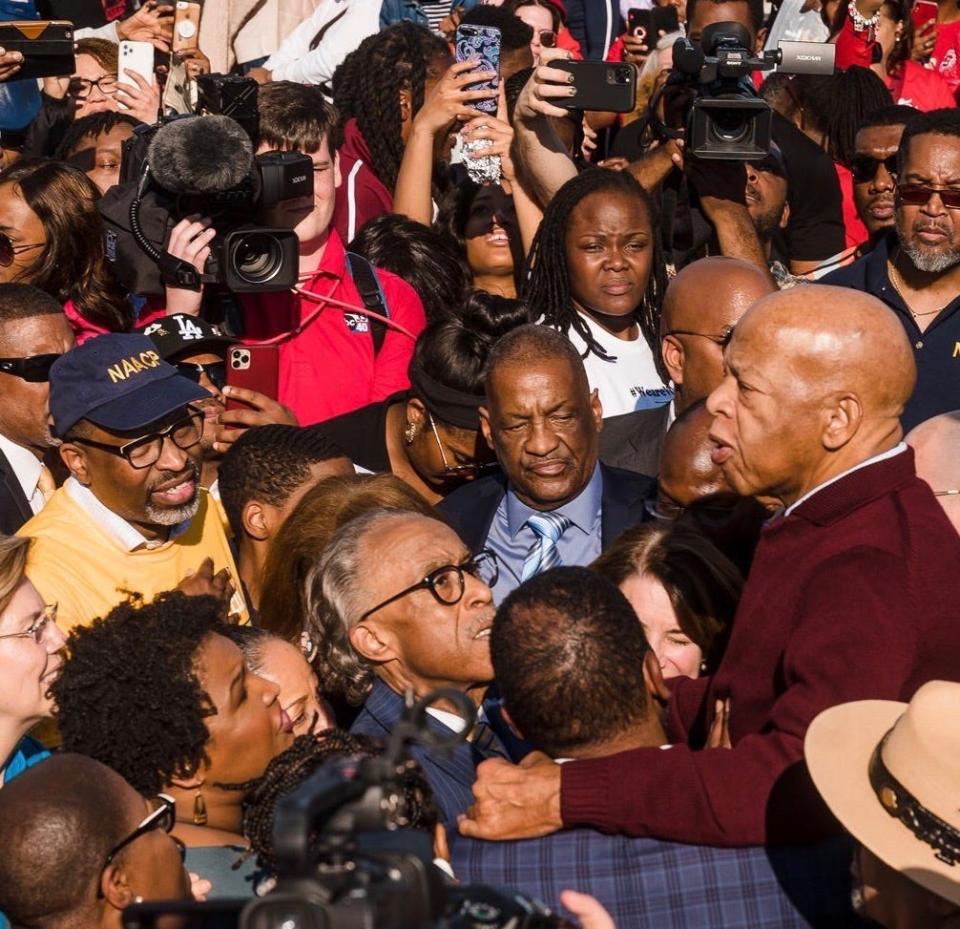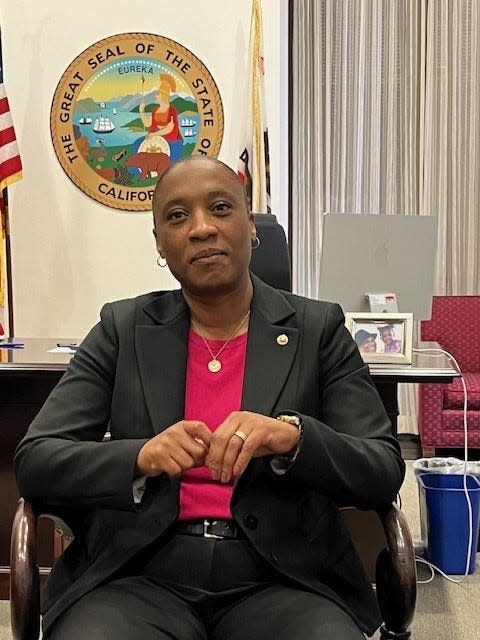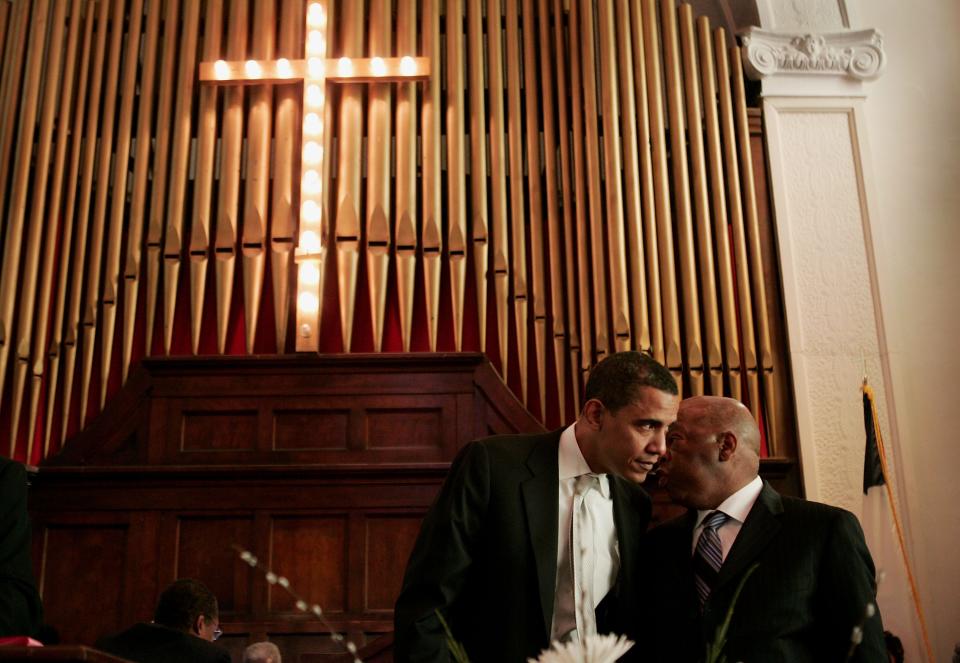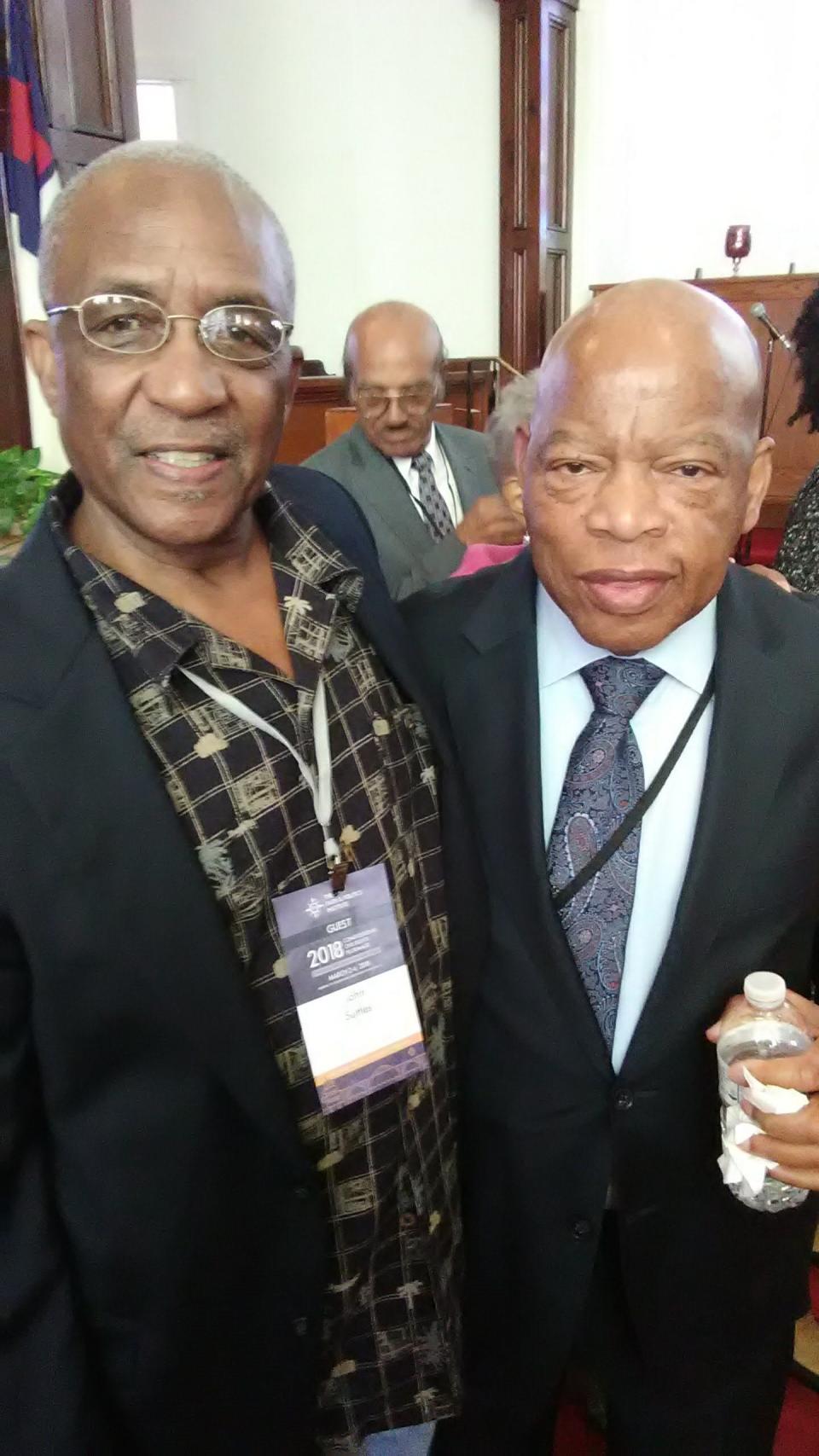Fighting for voting rights, making 'good trouble' in John Lewis' name, now a partisan issue
WASHINGTON ‒ It frustrates John Suttles that Congress has yet to pass a bill named after fellow civil rights veteran John Lewis.
“They mean well,‘’ Suttles, 76, said of members of Congress who reintroduced the John Lewis Voting Rights Advancement Act. “We’re not doing what we need to be doing to get it done once and for all.”
One of Georgia Rep. John Lewis’ last wishes was for Congress to pass federal legislation that he and supporters believed would better protect the rights of voters. But the legislation named in honor of the late civil rights icon has repeatedly stalled in Congress.
Chances are slim lawmakers will pass the bill in the few months remaining on the legislative calendar. Republicans who control the House have signaled their opposition, and Democratic efforts in the Senate appear to be at a standstill.
But Democrats are hoping that with voting rights and election concerns on people's minds, lawmakers could be pressed to act this election year. The measure's backers said they remain undeterred in the face of opponents who argue the law is unnecessary.
“There is a reason why in the last few Congresses it has been among the most feverishly anticipated and fought-over provision,’’ Marc Elias, an attorney who works to help Democrats, told USA TODAY’s podcast, The Excerpt. “It would restore the Voting Rights Act to its place as the crown jewel of American democracy.’’

For decades, Democrats and Republicans had worked together on several voting rights measures.
“Unfortunately, that bipartisan consensus broke down sometime in the last 10 years or so and the courts have whittled it away,’’ Elias said.
Opponents say Lewis voting rights bill not needed
Opponents of the bill argue that it’s unnecessary and that much has changed since the 1960s, when states erected barriers to the polls for Black voters.
“When you look at the turnout and registration numbers, there’s just no justification for the law,’’ said Hans von Spakovsky, a senior legal fellow at Heritage Foundation, a conservative think tank. “In 1965, this law was needed.’’
Some Republicans contend Democrats are trying to take control of elections run by states. They support a 2013 U.S. Supreme Court decision that eliminated Section 5, a provision in the 1965 Voting Rights Act known as “preclearance” that required federal approval for election changes in states with a history of discrimination.
The Lewis bill would among other things restore that provision.
“The symptoms that showed the kind of discrimination going on, look that just has disappeared,’’ von Spakovsky said. “There’s no evidence of any kind of systematic widespread discrimination by state officials in any of the states that used to be covered by Section 5 or in other states across the country.”
Because of discrimination, voter registration and turnout rate of Black residents in 1965 in Mississippi was in the teens compared with 50% to 60% for white voters, he said. But he noted that in recent elections Black voter registration rates have been higher than for white voters.
In November 2022, 72% of white people in Mississippi and the same percentage of Black people were registered to vote, according to the U.S. Census. Nearly 46% of white Americans and 47% of Black Americans voted, the agency found.
The Lewis bill would give the U.S. Department of Justice veto authority over election changes made by states all over the country, von Spakovsky said.
“It’s written in a way to expand, totally expand Section 5 at a time when we have less discrimination in the voting contests than I think we’ve ever had.”
Voting rights advocates say a new law is needed
Voting rights advocates disagree, believing the bill is desperately needed. They point to an increasing number of states that have adopted measures that could restrict access to the polls and disproportionately affect voters of color. Those laws have, in some cases, reduced the number of ballot boxes, limited early-voting periods and required stricter identification to vote.
They also argue that gaps between Black and white voter participation across the country have persisted in federal electoral contests.
“Voting rights and access to the ballot remain a problem in our country,’’ said California Sen. Laphonza Butler, a Democrat and bill co-sponsor. “Until we pass it, until we have rectified the wrongs, we should as a Senate and as a legislative body continue to introduce and reintroduce the legislation until it is fixed.’’
Butler held a voting rights hearing in Alabama last month ahead of an annual commemoration of a 1965 march led by Lewis, where he and other peaceful protestors were beaten by state troopers. The march, known as "Bloody Sunday,'' helped spur passage of the Voting Rights Act.

Lewis, who died in 2020, worked with the Student Nonviolent Coordinating Committee in the 1960s to register Black people to vote, mostly in the segregated South.
'’Here we are in the same state of Alabama continuing to fight against going backwards in terms of access to the ballot,’’ Butler, a former labor organizer, said after the hearing.
Nearly a week later, the Senate Judiciary Committee chaired by Sen. Dick Durbin, a Democrat from Illinois, held a hearing on the bill in Washington, D.C.
The proposed bill would also strengthen voters' ability to challenge laws, such as those related to redistricting that could be discriminatory.
"Thanks to a series of misguided Supreme Court decisions, there has been a significant deterioration of the fundamental right to vote,'' Durbin, a lead sponsor of the bill, said at the hearing.
More: Senate said no to voting rights. Here's how civil rights activists are reigniting the fight
A new partisan divide
As of last week, the Senate and House versions of the bill had no Republican co-sponsors.
It’s difficult to get an election bill through Congress and especially in an election year, said U.S. Election Assistance Commissioner Thomas Hicks, who worked on election issues as a staffer in the House.
“Is it too large of a bill? Are there parts of it they can get passed? I don’t know,’’ he said.
In contrast, Hicks and other experts point to the 2002 Help America Vote Act as an election bill that garnered bipartisan support. It aimed to help states improve their voting systems.

Republicans and Democrat alike "took hits," he said, “to get that bill passed in the House. It was a huge piece of bipartisan legislation.’’
Michael Waldman, president and CEO of the Brennan Center, a liberal-leaning research center, said the Lewis bill along with the Freedom to Vote Act, another voting rights measure, have “came achingly close to passing.’’
The House has passed the Lewis bill, but it has stalled in the Senate. Alabama Rep. Terri Sewell, a Democrat and Lewis mentee, reintroduced it last fall.
Waldman noted it took at least three tries before Congress passed the landmark 1965 Voting Rights Act.
The last time there was much bipartisan support for federal voting rights legislation was in 2006, when Congress reauthorized the 1965 Voting Rights Act. The Senate voted 98-0 in favor of it.
In action: Voter turnout more than doubles in Alabama's controversial, redrawn congressional district
“It’s unfortunate that it’s partisan (now), but that shouldn’t stop action,’’ Waldman said.
Elias, an attorney with Elias Law Group, said the makeup of the next Congress will matter.
“We will wait and see next year when Congress reconvenes in 2025 to see whether or not after the presidential election there is an appetite in Congress to do what must be done.’’

Suttles, the civil rights activist, joined John Lewis and others on the march to push for voting rights in Selma, Alabama, nearly 60 years ago. He said ensuring voting rights, as Lewis wanted, is simply the right thing to do.
“For his bill not to pass, somebody ain’t doing something right," Suttles said. “I’m not blaming anybody, but everyone needs to come together … and let’s get it done.”
This article originally appeared on USA TODAY: John Lewis Voting Rights Act stuck in Congress, but some fight on


